10 years of Lime Green Consulting - and 10 top fundraising and strategy lessons that we've learned11/7/2024 10 years ago this month, I launched Lime Green Consulting - with a simple, on-a-shoestring website and a half-formed aspiration to help smaller charities navigate their way through a challenging landscape. I’d been freelancing for a few months, having previously been Fundraising Manager at a small international development charity. I wanted to help people wrestling with some recurring challenges: the pressure to sustain income in a tough funding climate, the need for a really focused strategy, and the challenge of delivering results with a limited budget, risk-averse Board and small supporter base. To be honest, we spent most of the first two years figuring out what type of support we wanted to provide, how to explain it, who we wanted to work with, and how to reach them. There were times when I wasn’t sure I could find enough work to keep me busy, let alone the team we’ve become. In a classic freelancing tale, those worries quickly flipped to trying to figure out how to keep on top of multiple projects without the need to still have my laptop open at 9pm. It truly is a rollercoaster ride. 10 years later, we've provided consultancy support to over 350 charities and social enterprises, trained well over 2,000 people, and raised millions of pounds of vital grant funding. All against a backdrop of the greatest turbulence the sector has ever known – we've worked through six Prime Ministers, the worst of austerity, Brexit, a global pandemic and now the cost-of-living crisis. This has been bittersweet - on the one hand, it’s been a privilege to help people navigate their way through the uncertainty. On the other hand, it’s frustrating knowing that if only other people (Government, commissioners, funders) could get their sh*t together, maybe we - and many of the charities we’ve supported - wouldn’t be needed at all. I wanted to mark our 10th anniversary in some way, but I had the words of a very wise fundraiser ringing in my ears – anniversaries very rarely mean much to people outside your organisation, so don’t go overboard, and have a clear purpose in mind. So we've kept things simple and just taken the opportunity to re-share 10 of our biggest lessons from a decade of running Lime Green. These are all things that we’ve written about before, but keep coming back to in our training courses and consultancy work. Enjoy the recap... 1. Don’t invest time in creating a strategy that ends up in a dusty drawerA good strategy takes lots of time, lots of people, lots of planning. Done right, this can bring about much-needed clarity and confidence in the future. But there’s nothing more dispiriting that all that energy ending up in a lengthy document that nobody ever reads or refers to, and doesn’t change or guide people’s day-to-day work. You can partly avoid this by designing a collaborative and inclusive strategic planning process, but there are also plenty of things you can do after writing up your strategy to ensure that all the hard work is worth it. 2. You’ll never get anywhere without a fundraising-friendly cultureYou may have talented fundraisers, money to invest, and a good case for support. But if you don’t have a fundraising-friendly culture, you’ll still fall way short of your potential. For me, a fundraising-friendly culture is when everyone in your organisation - whether that’s five, 50 or 500 people - recognises the importance of good fundraising to the bigger picture of your work, understands all the little things they can do to support your fundraising efforts, and feels motivated to play a part. Here’s a list of the key things that all the best fundraising charities do and have in place. 3. If you’re starting public fundraising from scratch, people knowing you’re a charity is half the battleWe work with a lot of organisations that are looking to become a true “fundraising charity” for the first time, often prompted by the loss of a key statutory contract, or dwindling grant funding. Yes, they need to think about fundraising tactics - appeal themes, regular giving schemes, suggested donation amounts. But first and foremost, they need people to appreciate that they’re a charity in need to donations, in a world where few people have any real understanding of how many vital organisations are charities, and how they’re funded. We’ve previously shared these thoughts on how to ensure people know you're a charity, and why this is so important. 4. When in doubt, fall back on some universal fundraising truthsWhen the pandemic first hit in early 2020, we scrambled to help smaller charities that had been thrown into crisis. We organised several free online Q&As, fielding a wide variety of questions on how to respond and how to adjust fundraising tactics. Hopefully we provided some inventive advice - but you know what, we mainly realised that when the world gets turned upside down, it’s the same universal principles that will get you through. Careful prioritisation, building on your strengths, investing time in donor relationships, saying thank you well etc. This prompted us to write up seven universal fundraising truths that will never let you down – and four years on, we still swear by them. 5. Invitation-only funders offer untapped potential, if you know how to engage themEver found a funder that seems like the perfect fit, only to learn they don’t accept unsolicited applications? It’s easy to write off these funders with a sinking feeling, but if your work is niche and/or you’ve approached all the ‘obvious’ household name funders already, then invitation-only funders may hold the key to broadening your funding base. Over the years, we’ve sussed out some of the main reasons why funders go down the invitation-only route, and how you can build relationships with them. And it’s been encouraging to get feedback not only from charities that have successfully put these tips into action, but also from some funders saying this is how they like to engage with new organisations too. 6. There’s no getting around it - trusts fundraisers need to pick up the phoneFor many trusts fundraisers, getting on the phone to funders is one of the least enjoyable parts of the job - but it can really help. Sure, we’d all prefer to live in a world where funders’ online guidance is crystal clear, and their decision-making processes are completely transparent, meaning a quick phone call wouldn’t be needed or have any impact on our prospects. But we don’t. Over the years, I’ve received so many nuggets of information from funders over the phone, in the form of helpful advice or telling throwaway comments. This prompted us to share some tips on good questions to ask as a reason to phone a funder in the first place, and further information to probe for once you’re connected to them. 7. The best trusts fundraisers ask difficult questions, instead of papering over the cracksOne more underrated skill in the trusts fundraising toolbox before we move on: the ability to ask difficult questions internally. I’ve found that while most charity staff will be hoping you’ll write applications as quickly as possible, and use your own initiative to fill in the gaps, there’s often good reason for slowing things down. Spotted a gap or contradiction in your organisation’s consultation data, project activity plan or budget? Struggling to explain a point that feels key to your application? Don’t plough on regardless - it's your job to anticipate and address any concerns a funder might have, not to work as quickly as possible and keep colleagues happy at all costs. 8. Unless and until funders change, we can’t get anywhere as a sectorDespite all the tips above, good trusts fundraising tactics will only get us so far. Because it’s also the job of funders to make it easier to understand them and access their grants. They should see this as both a moral responsibility and one of the best ways of increasing their social impact. More core funding. More straightforward and accessible application processes. Clearer guidelines and more flexible funding criteria. The best and most progressive funders are nudging in this direction, but many more need to follow. Because bad grantmaking does our sector no favours, and it has a human cost too. As a fundraiser, you’re not totally powerless - take the opportunity to call out bad grantmaking practice, and support brilliant initiatives to change the sector for the better when you see them. 9. Philanthropy is problematic, and you need an ethical fundraising policy to get through this minefieldRecent years have brought some clear-cut examples of “bad money”, including Edward Colston and the Sackler Trust. But dig a little deeper, and there are countless grey areas to contend with. The fundamental problem is that philanthropy buys a seat at the table for a very specific demographic - wealthy, privileged, usually white and male. Through their decisions on what they do/don't fund, their roles on Boards and advisory groups, and their status as thought leaders, they gain disproportionate influence in implementing their own vision of social change and climate justice - and that vision may be very different from your own. Navigating your way through this, and deciding when to accept or reject a donation, isn’t easy - especially at a time when funding is so precarious. You’ll need an ethical fundraising policy – and this means having challenging but empowering conversations with people at all levels of your organisation, rather than quickly downloading and filling in a template policy. 10. The small charity sector needs consistent, quality, well-funded infrastructure supportIn the past 10 years, we’ve worked with so many brilliant small charities run by people who haven’t had the luxury of professional training, have little money for skills development, and may not speak English as a first language. They do incredible work but they have so many hurdles to clear - for example bid writing, finance, and IT - all without the budget to recruit a specialist staff member or consultant. They need prompt, dependable, consistent infrastructure support wherever they are in the country. And right now they're not getting it, following the closure of multiple national infrastructure organisations in recent years. This is partly down to a collective failure by grantmakers - resulting from short-sighted policy and excessive ego - and we’ll keep banging this drum until things change. A heartfelt thanks to each and every one of you that we’ve had the pleasure and privilege of working with since 2014. And here's to the next 10 years, hopefully in a less turbulent landscape and under a more positive Government 🍾
0 Comments
March 2022 marked the end of an era, as the Small Charities Coalition (SCC) closed its doors for good. Hundreds of people listened to the voices and experiences of small charities by joining their final celebration event ‘The Power of Small’ or reading their ‘Small and Mighty’ follow-up report.
If you haven’t seen the report yet, it’s well worth a read. There are lots of interesting reflections on the value and future of small charity infrastructure support, as well as an announcement to bring relief to many: SCC’s free HelpDesk and Charity Set Up Tool will continue under the new joint stewardship of the NCVO and FSI. The question of how the sector secures long-term funding for this type of vital infrastructure support, and how we can get people to value it, still looms large. I was really hoping the report would tackle this head-on, but it doesn’t really say anything new - that’s a disappointment, but a topic for another day. The report outlines four Small Principles for those working with, funding and supporting small organisations. The first of these is ‘If you support or fund small charities, say so upfront.’ The context is that the small charities surveyed for the final report overwhelmingly said they trusted SCC because it was explicitly set up to support small charities, as well as being a small charity itself. While many organisations offer support and services to small charities as part of a much broader programme, this rarely inspires the same confidence. This is a really important point, and on reflection something we at Lime Green need to say more clearly on our website and elsewhere. While we don’t work solely with small charities, they were the original reason why we started, and remain the main audience for our consultancy, training and resources. So in response to Small Principle #1, this blog is about one thing: showing that we're here for small charities. We could never, and don’t want to, replicate the broad suite of support and services offered by an organisation like SCC. There’s loads we don’t do, in which case we'll always signpost to others. But if you need something that we do provide, I hope you’ll feel able to come to us with confidence. Here’s why: We're a founding member of the Small Charity Friendly Collective. Head this way to find out more about this amazing bunch of small charity specialists, each with their own specialist expertise - we're all committed to providing accessible support and free resources to the small charity sector. Our experience is small charity to the core. My entire time as a charity employee and trustee was with charities with a turnover below £1million. As a guide, in the past three years nearly three-quarters of our consultancy clients have been either registered charities or social enterprises below this turnover threshold, often significantly below it. This small charity experience shapes how we work. I’ve personally felt that frustration when support is unintentionally alienating or irrelevant for small charities. You know, assumptions that you have a marketing budget, a ‘team’ of fundraisers, available reserves. Training that leaves you with plenty of ideas but no clue where or how to start implementing them. This frustration drives our approach - we always strive to be relevant and proportionate for small charities. It's great to get positive feedback about the quality of our work, but I’m equally proud that we’re seen as being friendly, flexible and kind - easy values and cliches to put on paper, but only meaningful when backed up by feedback. We use expertise as a force for good. The knowledge and skills gained from working with a wide range of organisations can be a double-edged sword. Specialist expertise can solve problems, empower organisations and build confidence - but used incorrectly, it can overcomplicate things, demoralise people, and only serve to make the consultant look clever. We aim to do all of the former and none of the latter - in my experience, that's not as common in our sector as you'd think. While we do sometimes use specialist tools and frameworks (some designed ourselves, some borrowed from the business world), we’ll only do so if they genuinely solve a problem, and if we can explain to an organisation how to keep using them in-house. We strive to create practical content that make sense, and we’re vehemently anti-jargon - if you see us breaking these rules, please call us out! We create free resources specifically for small charities. Too often, I feel like fundraisers and consultants operate in an echo chamber, endlessly recycling and debating issues that may be interesting but are ultimately irrelevant for small charities, who form the majority of the sector. While we do of course write and talk about topical issues, we do so with the explicit aim of demystifying them and being practically-minded:
We train hundreds of grassroots organisations each year. We work with partners that focus on serving small organisations, including the School for Social Entrepreneurs and various CVSs (Councils for Voluntary Services). We were also an approved trainer for SCC up until their closure. Again, you’ll see that our training feedback reflects our small charity focus - I love that we’re seen as being warm, friendly and approachable, as making groups feel comfortable, structuring content clearly, and giving encouragement to people who are already doing things well. Working with us costs less if you're a small charity. We offer a guaranteed discount of between 10% and 28% (depending on the service) on our consultancy fees for small registered charities. The work we do with larger organisations helps to subsidise this, as well as generating new learning and resources that we can then use and share more widely. Thanks to the Small and Mighty report for outlining their four Small Principles for future small charity support. I hope we can rise to the challenge and do our bit. At the end of August, we commissioned a joint survey with the School for Social Entrepreneurs to explore how the pandemic has impacted the training needs and preferences of fundraisers, with a particular focus on small-to-medium charities and social enterprises. We received 54 responses in total - thank you so much to everybody who took the time to share their detailed experiences and feedback. While this is a small sample and not representative of the sector as a whole, I wanted to share a few thoughts on what we’ve learned and how we’re responding... 1. The financial impact of the pandemic has varied wildly for different organisationsIt was striking how varied the responses were to this question, mirroring what we've heard from organisations taking part in our online training over the last 18 months. Encouragingly, 37% of organisations said their financial position had improved, particularly for those well-positioned to access emergency grant funding, albeit with some concerns for the future: Worryingly, 31% of organisations felt financially weaker, particularly those whose work isn't directly related to the pandemic: It’s clear that, for many, emergency funding has done its job in shoring up the sector and ensuring organisations survive. As a result, some organisations have been able to develop promising relationships with new funders, presenting a long-term opportunity. But as always, there’s a danger that more complex and/or less popular causes are being left behind, particularly where their impact is longer-term and harder to measure - for example, infrastructure organisations that play such a vital and under-appreciated role in supporting smaller organisations in the sector. We'll continue to offer practical tips on how organisations in this position can build a convincing case for support, through our regular blogs and fundraising training. 2. Confidence and morale have been understandably knockedIf you're feeling varying degrees of challenged, disillusioned and exhausted, you're not alone. 46% of people reported becoming less confident about fundraising, compared to just 24% becoming more confident. It's clear from the written responses that while fundraising itself is tough, it's the challenge of juggling the demands of running an organisation, securing vital funding and navigating current life that's really hard: Respondents voiced a particular need to build skills and confidence in high value fundraising i.e. corporates and major donors. These areas are particularly susceptible to the combined financial damage wreaked by Covid and Brexit, and the logistical difficulties that come with limited face-to-face interaction. We'll be exploring how we can put a stronger emphasis on these areas in future courses. In general people seemed more confident with public fundraising (events, community and individual giving) with many organisations benefitting from a groundswell of grassroots support during the pandemic. 3. Organisations are feeling surprisingly confident about their strategic directionGiven the amount of firefighting done over the past 18 months, and the comments above about how people are generally feeling, we were surprised and hugely impressed to see more than half of organisations feeling clearer and more confident about their future strategy. Some organisations have benefitted from the breathing space afforded by emergency funding to be able to take a step back, while others have naturally been evaluating their place in the world - and the changing circumstances and needs of their service users - during the uncharted territory of the pandemic. This certainly mirrors our experience. We’ve been busier than ever with our strategic consultancy, with many organisations committing time and money now to reflecting and learning from the past 18 months. This has led to organisations identifying ways to do things better and more cost-effectively, wrestling with difficult issues such as digital exclusion and financial sustainability, and emerging from a turbulent period feeling clearer and more confident as a result. There’s no doubt that this strategic clarity will be a huge confidence boost to funders, donors, trustees, volunteers and service users alike. If you haven’t sat down and formally discussed yet what you’ve learned from the pandemic, and how you can do things differently in future, it’s certainly worth trying to do this ASAP. If your team is trying to do this while still working remotely, check out our recent blog on how to run better online strategic planning workshops. 4. Online training remains a better and more accessible option for many, even as things open upOnline training may have been born out of necessity, but we all better believe that it's here to stay. While current circumstances have allowed us to resume some face-to-face training, close to half of respondents still prefer online sessions: It’s clear that online training is simply a better long-term option for many, particularly those with limited time, care responsibilities or based outside of major cities: We've heard this message loud and clear, and will ensure that online training remains a significant part of our future offer. However, we’ve also learned over the past 18 months that online training absolutely can’t just be a face-to-face training format moved online. We’ve now had loads of time to learn on the job and listen to feedback both after courses and in the survey, and will be trying to put this into practice in the coming months:
There's arguably never been a tougher time to fundraise, so we all need all the help we can get. We've assembled this list of handy tools that weren't designed for fundraising, and aren't widely used by fundraisers (as far as we know), but will definitely enable you to save time and/or raise more money. The vast majority of these tools are either free, or have a free basic package...  Visualping is a tool that detects changes in webpages and automatically sends you an email notification. You know those times when you’re waiting for a funder to re-open applications or finally unveil their new strategy? Stop checking their website repeatedly and start using Visualping to alert you as soon as it's updated. Cost? Free to monitor up to two pages simultaneously. Paid packages start from $4 per month.  Hemingway reviews your writing to make it bolder and clearer, and identify readability issues. Just copy/paste written text into the box and it flags common issues such as sentences that are hard to read, and words that have a simpler alternative. This isn’t a perfect tool because of course it doesn't know the context in which you’re writing or who the recipient is. However it’s still a great starting point for reviewing the first draft of a funding application, fundraising appeal or report. Cost? Their website tool is free.  When you've spent hours labouring over your written work, spotting mistakes is harder than it sounds. Using a read aloud tool such as Natural Reader to listen to what you've written will give you a better chance of spotting errors that the eye skips over. Cost? Natural Reader is completely free. There’s also an in-built read aloud tool in newer versions of Microsoft Word.  Yesware tracks emails that you send and notifies you when they are opened or when certain links are clicked. It’s primarily for sales professionals but can be helpful if you’re sending funding pitches or introductory emails to funders. No need to sit there wondering if your email actually made it! I haven’t used this one for a while, but they state that it’s fully GDPR compliant. Cost? Prices start from $14 per month, so may only be worthwhile if you’re sending a lot of cold approaches that you need to monitor.  Crystal is easily one of the most effective and terrifying tools that I’ve come across. It analyses publicly available information about people (including their published written work) to provide insights about their personality type. Based on this, it gives you tailored recommendations about how to communicate with them, such as how to phrase things in emails. This is helpful if you’re contacting someone that you don’t know very well and really need to catch their attention. I first used Crystal a few years ago and did the obvious thing of searching my own personality type. I thought the observations were way too harsh, but my partner thought they were bang on, so there you go! Cost? Free package provides a limited number of recommendations each month. Pro package is $29 per month.  Many people will already know Hootsuite as a very handy social media scheduling tool, but it’s also great for “social listening”. You can set up search terms which allow you to track conversations related to your cause or a topical issue. You can then join in those conversations or just use them to tailor your communications to what people care about - great for digital fundraising. Cost? Using Hootsuite for scheduling is free, but social listening is a paid feature.  Canva is also well-known, but it’s too useful and versatile not to include here. As a design package, it’s so easy to use that even a complete amateur (and I’m definitely one!) can create decent designs. I’ve used it to make social media graphics, website banners, presentation templates and infographics – which are amazing for visually demonstrating statistics and concepts that would take a lot of words in an appeal or funding application. Cost? Their free package comes with over 8,000 design templates in 100 categories. Canva Pro starts from £8.99 per month, but their Canva for Nonprofits programme gives free access to registered charities and CICs.  Finally, a tool that might be more useful than ever as people settle into another period of home working. StayFocusd is a Chrome browser plug-in designed to boost your productivity. If you’re struggling to focus on that all-important report or funding application, you can block all other websites to prevent your mind wandering. StayFocusd is customisable, so you can select which websites to block and for how long. They have a ‘nuclear option’ which, once activated, can’t be reversed until the time runs out! Cost? Free, which is probably for the best. In our Fundraising During Covid-19 online briefing last week, five different fundraising specialists talked about their recent experiences and what organisations should be looking out for in the next 6-12 months. Here are six lessons from the briefing for fundraisers far and wide... Firstly, a huge thanks to our panel of four external speakers:
1. People are still giving...The headline news from all our speakers was that, for the most part, people are still donating and fundraising. Research in May showed that one-third of UK donors were actually donating more than pre-Covid-19. Louisa highlighted the phenomenal success of mass participation virtual events like the 2.6 Challenge. Claire said that while many charities felt uncomfortable talking about legacies in the early months of the pandemic and stopped doing so, the Law Society actually reported a dramatic growth in will writing - potentially an opportunity missed for the sector. Some charities have been working sensitively with executors to speed up legacy payments to help with cash flow problems. I shared this example of a small family trust that are still giving, and doing what they can to show flexibility and understanding: They may be facing their own challenges, but funders and donors are also responding to events around them - stories in the news, or experiences of illness or tragedy closer to home - which are often prompts for wanting to support good causes. 2. …but they're also facing new pressuresWhile people are still giving, many are feeling the strain of the pandemic – financially, emotionally and in terms of time/capacity. With a recession around the corner and dividend income down, some philanthropists may hesitate about donating, and some companies are slashing Corporate Social Responsibility budgets. Trusts and foundations will be dealing with the same logistical challenges as you – staff furloughed, unwell or struggling with childcare, meetings postponed, and technology hiccups. In such uncertain times, it’s easy to talk yourself out of asking for money at all. This is a mistake. If you don’t ask, you’re denying your funders and supporters an opportunity too, and somebody else will them instead. It’s fine to ask, but be conscious of the challenges people might be experiencing currently, don’t put them under pressure, and listen and respond to feedback. Contact companies and trusts to check on their current situation before applying, to avoid wasting your time and theirs. Listen carefully to your prospective major donors - hearing ‘no’ might not be an absolute rejection, but could just mean no to that amount, no for the next six months, or no to that particular project. 3. Relationships remain crucial, but adapt your approach to building themBuilding relationships is one of our seven universal fundraising rules that will never let you down. But developing relationships amid social distancing, and when your time is stretched, is difficult. While it's been a pleasant surprise just how much can be achieved online in recent months, there's no easy substitute for face-to-face interaction when it comes to getting to know supporters or getting introduced to new contacts. Nevertheless, we mustn’t abandon our attempts to build meaningful relationships. Harpreet told attendees that now is the time to be creative, test new channels, and invest time in ideas and conversations on social media. It could also be a good time to re-examine your lawful basis for getting in touch with your supporters – Harpreet observed that many charities haven’t communicated with some supporters since 2018 because they didn’t give opt-in consent when GDPR came in, but some of these supporters may never have understood why they stopped being contacted. You could explore using ‘legitimate interests’ to get back in touch now. If cancelled events have freed up budget and staff time, consider investing this in phoning supporters and being more active and visible on social media. Don’t hold off communicating with supporters because you don’t have a specific ask ready. Phone them anyway, even just to ask how they’re doing or to update them on your work. Investing time in relationships now will lead to stronger support and donations tomorrow. 4. Keep externalising your case for supportOne speaker observed how many organisations have recently asked for money to ‘keep their doors open’ or avoid laying off staff. Sadly, while this is paramount to you, it's unlikely to be compelling to your donors, unless they’re extremely invested in your organisation. Donors care about the people you support and the positive impact of your work, not keeping you afloat. So you need to be telling inspiring stories and presenting a clear case for support that explains who you help, why they need support, what you do to meet the need, the impact of your work, and why you’re best placed to achieve change. Virtually all our speakers highlighted the importance of a good case for support - for funding applications, individual giving campaigns, major donor asks and legacy fundraising. It’s more important than ever during a crisis, with so many organisations competing for donations and emergency funding. One possible negative impact of the recent Government bailouts for the charity sector and the arts is that the general public might mistakenly perceive that charities are now well-funded. The reality is that these bailouts are tiny in the face of rising need, but it’s up to you to make this case to your supporters. 5. Maintain quality and good practiceWe asked our speakers to explain what hasn’t changed in fundraising since Covid-19, as well as what has - and it was abundantly clear that good practice doesn’t go out the window when a crisis strikes. Time and again, our speakers emphasised the importance of doing things the right way, even when there's a sense of urgency. Louisa talked about the need to plan events well in advance and budget very carefully, especially when social distancing might mean your events have to be smaller-scale and less profitable. Claire highlighted the need to maintain common good practice in legacy fundraising: not leading with a scary focus on death, taking a ‘drip drip’ marketing approach, and always respecting donors’ wishes and wellbeing. It’s easier to keep an emphasis on quality and good practice when you don’t overcommit. For example, you’re likely to make a better impression - and raise more money - if you take the time to write three emergency funding applications well, rather than rushing out eight poor-quality bids. 6. We’re all still figuring things out - so be curious, flexible and kindHarpreet put it best when she said that right now, fundraisers have to be comfortable not knowing all the answers, as we’re all feeling our way in the dark. This is an unprecedented crisis – nobody really knows what is round the corner, or which fundraising tactics will yield the best response. So I believe we need to do three things:
Be curious - test out new messages and ways of communicating with supporters, before committing significant time and budget to them. Measure and reflect on the results. Monitor what other organisations are doing well, and badly. Ask other fundraisers for advice, and sign up for events where people share observations and best practice. Be flexible - lockdown restrictions and public mood are liable to change quickly, so be ready to respond. Your Senior Management Team will need to be more agile and get used to signing off ideas more quickly, or your organisation could be left behind. Be kind - it’s ok to not know what’s round the corner, to make mistakes, and to sometimes just feel overwhelmed and despondent. Equally, Louisa mentioned the importance of celebrating your successes when they come – this keeps you feeling positive, makes the inevitable rejections easier to deal with, and boosts colleagues’ moods too. You don’t need me to tell you that the world has turned completely upside down. In recent months, you’ve likely faced new challenges, had to come up with new ways of working, and completely reinvented services or repurposed people’s roles. As we've been sharing fundraising advice with our clients, I've noticed that while much of this work involves interpreting and responding to new situations, it’s amazing how much hasn’t changed. So many of our top tips for good fundraising in ‘normal’ times hold true for crisis fundraising too. Amid the current uncertainty, it's comforting to fall back on some universal fundraising rules. No matter what life throws at us next, we're pretty confident that these rules will never let you down... 1. It’s better to do a few things well than stretch yourself too thinWhether you’re deciding which emergency funding opportunities to pursue, or making a top-level decision about to do as part of your fundraising strategy, prioritisation is vital. While it’s natural to worry leaving stones unturned, or feel under pressure not to say no, taking on too much is usually the bigger issue. When you spread yourself too thin, you don’t leave yourself enough time to do things properly, and you’ll raise less money as a result. Every decision you make to sacrifice or postpone something less important frees up more of your time to pursue something you’re really good at, or well placed to succeed with. Fundraising is a skilled profession and requires diligence and quality. That doesn’t mean only ever concentrating on one thing - diversifying income sources over time is important - but don’t bite off more than you can chew. 2. Always play to your strengthsWhen deciding what to prioritise, always give yourself the best possible chance of success – which funders do we fit best with, or know our work already? What activities have historically raised us the most money? What types of donor do we have the best relationship with, or are most likely to appreciate what we do? This sounds obvious, but I’m amazed how many organisations make their lives more difficult by attempting things they don’t have the skills to do well, moving into a completely new market, or banking on quickly building good relationships with donors or funders from scratch. By all means try new things, but don't bank on instant success, and consider whether there are easier opportunities to explore first. And don’t assume that something that worked for another organisation will automatically work for you. Shameless plug: we help organisations to understand their strengths and weaknesses, prioritise the best fundraising opportunities and over-committing their resources to things that won't work. 3. Invest time in quality relationshipsI'm reluctant to use the phrase ‘relationship fundraising’, because it's been around (and over-used) for decades. But let’s look at why relationships with funders and donors are so valuable. They give you a ‘way in’ to pick somebody’s brains about an idea or application, and get insight and advice that isn’t available to all. They create friends who naturally want your organisation to do well, and are in your corner when things go wrong. They enable you to reach many more people by leveraging your friends' networks too. Just like in our social lives, good relationships open us up to new opportunities and help us out in moments of need. In the current crisis, so many organisations have leant on their existing funders and donors for extra financial support, more flexibility in how to use donations, and introductions and recommendations to others. Those key relationships are delivering a financial return like never before. This rule is being disrupted by rise of online fundraising platforms like Facebook Giving Tools, which make it virtually impossible to gather donor data and consent. In rare cases, you may decide that the immediate fundraising return is worth sacrificing the potential for new donor relationships. But more often than not, building relationships is key to raising money and weathering an unexpected crisis. 4. A great thank you is one of your best fundraising toolsThis rule holds true across every type of fundraising. A well-written report to your current funder is more likely to lead to a new grant than a cold application to a new funder. Thanking individual donors often leads to repeat gifts, while asking people for a donation for the first time has a low response rate. Well-timed follow-ups with events participants or crowdfunding supporters build your future regular donor base. This blog explores the power of saying thank you, and our recent podcast episode explores the psychology behind why it makes donors feel good. Too many organisations still don’t get this right, but why? A common mistake is seeing thanking donors as a tedious admin task to tick off quickly when you have a dull moment, rather than an essential fundraising task to do promptly and do well. Re-framing your approach to thanking donors will help you to raise more - after all, it’s key to building relationships. 5. Fundraising is a whole organisation endeavourOrganisations that develop a strong fundraising culture, where everyone takes responsibility for success, raise more. This doesn’t mean that everyone has the time or expertise to directly ask for money. But everyone can play a role by introducing their contacts, sharing content on social media, providing quality project information for fundraising updates, volunteering at events, and being a sounding board for ideas. All these things will improve your return on investment, broaden your supporter base, and make your fundraisers feel supported and happy. No fundraiser excels with all the responsibility on their shoulders. Many organisations have achieved remarkable wins in the past two months because the crisis has focused minds and made people pull together. Now we need to make sure we keep this up in 'normal' times too. 6. All the best fundraising activities take timeGiven everything we’ve said about planning activities carefully, taking the time to say thank you and building relationships, it’s not surprising that success is rarely immediate. Expecting instant results not only leads to disappointment, but can cause you to abandon promising activities because you judge them too quickly. Corporate and major donor fundraising, and particularly legacy fundraising for obvious reasons, take a long time to bear fruit. It can take well over a year to secure big donations from companies or wealthy individuals, and several years to yield a consistent return. These activities can gradually become a crucial part of a long-term profitable portfolio, but they won’t save you tomorrow. Expecting instant results will just put people under pressure, reduce the quality of your fundraising, and harm long-term success. 7. Take a step back to move forwardWith money tighter than ever, fundraisers are often under pressure to move straight on to the next event, appeal or application, without considering what they learned and where improvements can be made.
As with saying thank you, this analysis is often seen as an added extra rather than essential part of the fundraising process. But gathering feedback from supporters, analysing data from your CRM and pausing to reflect are crucial to improving your approach over time. If you skip this, you’ll raise less, not more. The current crisis is no different. Right now we're all hastily adapting approaches and raising emergency funds, but there will come a time for all-important reflection. Which of these new approaches might work in normal times too? Which emergency donors can we build a profitable long-term relationship with? What have we learned that will help us prepare better for the next crisis? The organisations that make time for this reflection will do better in the long-term too. Tell us any universal fundraising rules that we've missed off this list in the comments below 👇👇 Like many, I’ve been watching on with despair at the impact of coronavirus on the charity sector. One of the things we’re doing to help in our own small way is to run a series of free live Q&As to give small charities advice on how to deal with the crisis. During the first Q&A, amid the technical questions about emergency grant funding, urgent fundraising appeals and strategic planning, one question jumped out: “Are there opportunities in the general gloom?” I really don’t want to trivialise what is an incredibly tough time for many. The current crisis is likely to have a huge long-term financial impact. Many charities are facing closure or being tested like never before. At a time when there was already nowhere near enough funding to go around, this is one more straw added to the camel’s back. And as Emily Maitlis brilliantly said, coronavirus will disproportionately impact the poorest and most vulnerable people in our society. It’s no exaggeration to say that I worry about these things every day. But that’s not to say that there aren’t any positives in the gloom. New attitudes and ways of working are being born out of necessity, but some of them could be here to stay. At a time when we all need a boost, it’s helpful to highlight a few… The flexible response from fundersBarring a couple of horror stories, most funders have responded overwhelmingly positively and are rallying around the sector. They’re giving grantees an unprecedented level of flexibility in terms of how, where and when they spend the money. In general, funders are giving away more money more quickly, with easier processes and fewer restrictions and reporting requirements, than ever seen. It’s important to remember that many funders are also registered charities and have their own charitable objectives to adhere to. This often explains why they have restrictions and reporting requirements in place. However, sometimes it also comes down to control and trust. Funders are currently ceding this control to charities and trusting them to use their judgement on where money is needed most - and if charities prove that this trust is well placed, it’s possible that many funders will continue offering increased flexibility in future. If you're unsure how best to tackle funders in these unusual times, we've tried to explain through the unlikely medium of an onion: The groundswell of public gratitudePublic and media attention are focused on things like the NHS, food banks and grassroots community organisations like never before. The Prime Minister is praising the NHS for saving his life, and looking like he might even still remember it in six months. Conservative MPs are publicly questioning their assumptions about so-called ‘low-skilled workers’. You really do have to pinch yourself to be sure this is actually happening – although it’s a shame and disgrace that it took this level of crisis to prompt it. Of course, the challenge will be to maintain this level of public support whenever things go back to(wards) normal. Still, maybe I’m being naïve, but it does feel like there’ll be an opportunity to change long-term perceptions for the better, and keep up public pressure on decision-makers, if we can harness the amazing stories of community solidarity, and the levels of recognition and gratitude, that currently exist. Some people have more time and money to give than usualAgain, we mustn't trivialise things. Many people are under more financial pressure than ever, and face the thankless task of juggling work commitments and care responsibilities. But equally, plenty of others actually have more time and money to give. There are people furloughed from work, desperate to do something to help, saving on their daily commute, and not spending money in pubs and restaurants. This is an opportunity. Pressuring people to donate in the current climate is unconscionable. And you should consider the ethics of running an ‘emergency fundraising appeal’ now for the sake of hitting targets, if there isn’t actually an urgent need. But if you’re being hit hard, explain what problems this crisis is causing for you, and give your supporters the opportunity to help fix them. Not everybody will be able to donate, but that doesn’t mean you shouldn’t ask. If any of the charities that I regularly support went out of business now, and hadn’t asked for my help, I’d feel very frustrated. This is an opportunity for volunteering as well as fundraising. More than ever, don't be afraid to ask people to give their time. Trust me, there are plenty of people out there – including children, teachers, graphic designers – who will jump at the opportunity to channel their creativity positively. Check out our associate consultant Gemma’s amazing blog on why micro-volunteering is more important than ever. Necessity really is the mother of inventionHow often do we hear phrases like “that’s not how we do things”, “there’s no point in trying that” or “it’ll never work because…”? Coronavirus and social distancing are removing many of the obstacles that might traditionally block innovation. People are inventing like never before, and entire businesses and workforces are being re-purposed. Formula One teams are making ventilators. Louis Vuitton are making hand sanitiser. Virus-killing snoods...hands-free door handles...anyway, let’s get back on topic. I’ve been blown away by the response from so many charities. Many seemingly and understandably took a week or two to quietly panic and face up to the new reality, then came roaring back with new, incredibly well thought-out ways of delivering services, interacting with supporters and engaging staff. Digital delivery and remote working have taken off like never before. New and unexpected partnerships are being forged within and across sectors. At Lime Green HQ, we’ve provided online training for several years but there are other things we’ve always insisted on doing face-to-face – to be honest, I now realise that many of the barriers were in our heads. For many organisations, the results of their efforts have been surprisingly positive. Not everything will work first time, or even at all – but there’s a tremendous opportunity now to test things and learn, at a time when people are being more patient and accommodating than ever. Increased flexibility and reduced travel are also bringing unexpected benefits – for the environment, for people’s wallets and, for example, for people with a disability. That’s not to say that many people won’t be counting down to the day we can all meet, learn and do things face-to-face again. But we should examine many of the things born out of social distancing, and ask whether some of them should be here to stay. Any big positives that we've missed? Tell us on Twitter or in the comments below...
It's often said that good fundraising and dating etiquette have a lot in common. We're frequently using dating analogies during our fundraising training and work with charities, so we've taken the plunge (prompted by a chat with our consultant Gemma Pettman) and included all our favourite lessons in one place... Don't talk about yourself all the timeWe've all had one of those terrible experiences with someone who can’t stop talking about themselves. You keep asking them questions but they never ask you anything in return, and you can’t get a word in. Doesn’t feel great, does it? Charities can be guilty of the same thing. Of course it’s important to tell your supporters and donors what you’ve been up to, but also take the time to find out about their interests and reasons for supporting you. It’ll make them feel valued and will help you to improve and personalise your content in future. Like with dating, finding common ground helps to create chemistry. I remember hearing someone once say that it’s a common mistake to “we all over your supporters” (I’d love to give credit for this delightful phrase, but I can’t remember where I heard it). When you’re next writing a newsletter or annual review, instead of just talking about what “we” have achieved, try engaging your supporters better by talking about what “you” have helped to accomplish. Don't expect too much on the first dateOne for the major donor fundraisers out there. You probably know it takes time to get to know a donor prospect and cultivate a relationship with them, but fundraisers often feel under pressure to make the ask and secure that donation immediately. If you’re not sure why this is a bad idea, try going on a first date with someone and asking them to marry you or hop into bed with you after one hour. When you have a first meeting with a prospective donor, you’re probably both expecting it to lead somewhere eventually. But while you might both have done your research, you need time to explore their interest in supporting your charity, understand which of your projects or activities most appeal to them, and build a picture of how much they might be willing to give. This may take several meetings, and cultivating a major donor to the point of making that first donation can easily take 12-18 months. The long-term payback will be worth it, but rush things and you’ll get nowhere. Don't talk about your ex all the timeTrusts and foundations often say that they won’t fund work which they consider to be a statutory responsibility, even at a time when statutory funding is being withdrawn for critical services. This is understandably very frustrating for charities, and it can be hard to work out what a funder means by this. Often, funders simply don’t want to feel that they’re just picking up the slack for government spending cuts, or that you’re only interested in them because another source of income has disappeared. Telling a funder that you need their support because statutory funding has been cut is a bit like going on a date and talking about your ex the whole time – hardly a good way of making the new person in your life feel special. Instead of just re-hashing a previous statutory-funded service, show that you’re over the past by talking about your work as an exciting and valuable project in its own right, clearly explaining why it's a response to your beneficiaries' real needs and how you'll deliver social impact. Don't call them by another name by mistake!Accidentally calling someone by your ex’s or another person’s name is just about the worst thing you can do. In both dating and fundraising, it can easily happen if you’re not careful. We all use previous funding application content as a shortcut for writing new bids. But please, check it VERY carefully to make sure that it doesn’t contain the name of a previous funder or contact, or your application could be destined for the bin. While we’re on the subject of names, always personalise your letters. That funding appeal or thank you letter which begins with ‘Dear Supporter’? If you’re wondering what impression that makes, try going on a first date and calling them ‘Date’ for the whole night… Invest time in keeping the spark aliveMost relationships begin with a honeymoon period where everything is new and exciting, and you can do no wrong. Sooner or later, you start noticing the little things about the other person that annoy you, you forget your manners, and you have to find new ways to keep things interesting or it might all fizzle out. In the same way, most donors won’t just keeping giving to you unless you keep paying them attention, educating them about your work and giving them new ways and reasons to support you. A good donor relationship is built on engaging newsletters, memorable thank yous, invitations to events and maybe even the occasional call to say “I love you”. This takes time but it’s well worth the effort, as well as being the right thing to do. It’s easy to just focus on acquiring new donors, but it can be far more valuable to keep the spark alive with current ones. "It's not you, it's me" – know when to walk awaySometimes a donor or funder simply isn’t the right match for your organisation – and, just like in a relationship, it can be nobody’s fault.
A trust may have financial restrictions (e.g. on the percentage of overheads you can claim) that could put your organisation at risk if you accept a grant. A major donor may want a level of recognition or control in return for their donation that you’re not able to provide. Accepting a corporate donation may compromise your charity for ethical reasons, even if it wouldn’t be a problem for another organisation. Successful fundraising involves being confident enough to sometimes say no for your own good, without pointing any fingers. After all, there’s plenty more fish in the sea. I’m sure you saw Andy Murray’s maybe-retirement announcement recently, and the media reaction to it. It was hard to miss. Aside from the sporting implications, his display of human emotion felt all-too-rare. Most sportspeople give little away beyond guarded responses and cliches, seemingly ever-suspicious of media intrusion and conscious of sponsor obligations. In the often male-dominated world of sport, real emotion and honesty are frequently still associated with weakness. Yet the media response to this fateful press conference in Melbourne was overwhelmingly positive. I’m not a huge tennis fan, but I’m fascinated by the transformation in Andy Murray's public reputation. Back in his early days, he had a reputation for being surly, bland and seemingly mistrustful of the media. In return, he was firmly portrayed as a Scottish rather than a British sportsperson, not helped when he made his infamous “anyone but England” comments ahead of the football World Cup in 2006! While much of this transformation is down to sporting success, his personality and honesty have played a part. He’s not afraid to stand up to perceived injustices and voice his views on difficult issues such as gender equality and Scottish independence. And following his recent openness about his physical and mental struggles with injury and pain, his public stock has never been higher. Watching Andy Murray reminded me just how refreshing, disarming and impactful authentic honesty can be. This is an under-used tool in the charity sector. Charities are often brilliant at holding up a mirror to society and making people notice and care about injustice. But are we always good enough at holding up a mirror to ourselves? And what holds us back? When you’re short of time, it can feel easier to present a simple, sanitised version of yourself and your work. Crafting messages about your struggles and weaknesses feels like it must be done carefully. After years of negative media coverage about charities, it's natural to want to present yourself positively: we know exactly what we’re doing, and every penny we spend goes to plan. I don’t think it always has to be like this. Here are a few ways of showing your more honest side, and why it's worth the time and effort: 1. Show that your work is challenging and things don’t always go to plan Many projects are complex to deliver. Talking about your setbacks gives people an insight into what your work is really like and makes them more emotionally invested. Think of the narrative of any good film or book - it's rarely plan sailing to the end, and the setbacks draw you into the story. Great fundraising is often a response to adversity. For example, in 2014, Manchester Dogs' Home raised £1.2million in 48 hours after a devastating fire. Communities rally around organisations in times of crisis, particularly with the rise of crowdfunding. Hopefully you won't experience a disaster, but being honest and open about minor setbacks – for example if you experience a delay or issue with building work after a capital campaign – can help you to raise vital extra funds if needed. 2. Trusts and foundations reward honesty too It’s not only public fundraising – honesty with funders usually pays too. With the precise focus on outputs and outcomes, we can often feel mortified if we're unable to deliver a project exactly as planned. However most funders are too experienced to expect everything to go as planned. If there's a hitch they’re usually on your side – they want things to go well too, and are often surprisingly willing to help. I know one charity that's delivering a big six-figure project. They rely heavily on volunteers, but had struggled to find a good volunteer coordinator, and failed to achieve some outcomes as a result. Instead of disguising or finding excuses for this, they explained the situation honestly in their mid-project report. The funder’s response: how much would it cost to increase the hours of your volunteer coordinator post and pay a better salary to find the right person? A top-up grant of £10,000 was on its way a few weeks later. 3. Involve your supporters in decisions that affect them I often see charities second-guessing how to communicate with their supporters. Would they prefer a monthly or quarterly newsletter? What types of story do they most want to hear about? Will they prefer Event A or Event B? Staff often have differing opinions, but rarely think about actually asking supporters. Perhaps charities assume their supporters won’t appreciate the question – will they feel the charity should know the answer already, or simply not bother to respond? However, consulting your supporters on important decisions shows a willingness to learn and leads to better engagement and more reliable insights. The real honesty here is asking for advice, and admitting that you don't have all the answers. 4. Handling complaints well is worth its weight in gold We all make mistakes sometimes, but it's too easy to respond with a weak excuse or with the defence that "we're just following our policy". Have you ever responded to a complaint with: “You know what, no excuses, we just got this wrong”? Most supporters complain because they care, and want to give you a chance to get things right. They’re not trying to catch you out. They’ll usually understand if you made a mistake because, guess what, they also make mistakes sometimes. A well-written apology and honest explanation actually builds trust and appreciation for what you do - several times I've seen this not only salvage a relationship with a donor, but also lead to increased support. 5. Show the people and personality behind your work Finally, being honest is also about showing what your work is really like – even if you look stressed, your desk is messy and your office is cramped! Showing the real you leads to empathy and familiarity more than judgement or criticism, in my experience. In my first job in the sector, I ran a major student fundraising event. We frequently tried to post photos on social media of us sending out welcome packs, taking deliveries of T-shirts or welcoming new staff. Our fundraisers genuinely liked this – for some reason, most seemed to think we were running the event out of a broom cupboard, and were amazed that the charity had a ‘normal’ office! It helped people to get to know us and appreciate that we were a professional organisation doing a lot of work behind the scenes. So thank you Andy Murray for the reminder about the power of honesty - and if you've got any other tips or stories about putting this into practice with your supporters or donors, we'd love a comment below!  Supporting England - and my adopted nation Costa Rica - during the 2014 World Cup Supporting England - and my adopted nation Costa Rica - during the 2014 World Cup I had a lovely trusts and foundations blog planned for this week. I really did. But it’s going on hold for a few weeks, because I’ve been bitten by the World Cup bug. I’ve been a football fan since around 1994 (more on that later). However, for perhaps the first time, I didn’t feel too excited during the build-up to this World Cup. A combination of England’s seemingly bleak prospects and the questionable ethics of hosting the tournament in Russia left me feeling a bit underwhelmed. Then the first ball was kicked and I've been captivated again - from the novelty of catching a few minutes of Portugal v Morocco at lunchtime to the joys of watching flamboyant surprise packages like Mexico and Senegal, and of course the typical emotional rollercoaster of an England game. Amid the drama and entertainment, there are also a few handy lessons to be learned by fundraisers and charities: Pride and motivation go a long way Hands up if you predicted that Russia would be the top goalscorers and best entertainers so far? Going into the tournament, there was a general sense that Russia had picked an incredibly bad time to assemble a weak squad. Nobody – including many Russian pundits – was talking about how far they could progress, only hoping that they wouldn’t embarrass the host nation. In their first game, Russia put five past Saudi Arabia, before a stylish 3-1 win over Egypt on Tuesday. A seemingly ordinary team have thrived in the spotlight and been transformed in front of thousands of partisan home fans. You probably can't find thousands of Russians to cheer on your fundraising team (and it might be a bit distracting anyway). But creating the right circumstances for people to thrive, and feel confident and comfortable in their work, is just as important as having skilled staff. If you can do more to make your team feel proud of their work, motivated to do a great job and clear about the end goal, they might be able to achieve more than you expect. You can also punch above your weight if you play to your strengths and develop a clear plan Russia aren’t the only team to raise eyebrows so far. Mexico secured a famous 1-0 victory over Germany, while Iceland claimed their latest scalp with a gutsy 1-1 draw with Argentina. These two performances had something in common – both teams worked incredibly hard as a unit and had a clear gameplan, focused on playing to their own strengths and exploiting the weaknesses of their opponent. This is also the key principle of a good fundraising strategy. You don’t need to be brilliant at everything to raise the money you need – just identify a few things that you do well, create a clear plan for maximising your return in those areas, and explain to everyone how they can play a part in getting it done. Appropriately enough, this week is Small Charity Week – so an ideal time to celebrate the power of punching above your weight. The power of a shared cause and dream Even in the modern day of mega-rich football club owners and eye-wateringly big TV deals, it's still the fans that really light up any World Cup. I love the atmosphere and the colour, and seeing the passion of people who travel thousands of miles to watch their team. How many other events inspire people to give up their jobs and sell their possessions so they can be there? Football fans are united by a sense of shared identity and a collective dream - and charities can tap into a similar feeling. People don’t support your cause because of who you are, or what you’re doing, but why you’re doing it. If you can articulate a clear vision, people will remember you and feel inspired to support your work – whether you’re trying to cure cancer, end child cruelty or make your local area a safer and better place. Be willing to embrace change
A big talking point at this World Cup has been the introduction of VAR (Video Assistant Referees). In an attempt to reduce refereeing mistakes, certain key decisions are now referred to professional referees in a TV studio, who can review the incident from multiple angles and recommend that a referee overturns their decision. VAR was first trialled in the UK during cup competitions last season, and was widely ridiculed. It caused long delays in play, confusion for fans in the stadium and on TV, and still got many decisions wrong. However, the system has quickly improved – while still not perfect, it’s already resulted in many correct decisions about penalties and goals at the World Cup, and is gradually being accepted as a positive development in the game. The lesson is clear – when you try to make changes, particularly involving new technology, you’ll often face teething problems and encounter resistance. For charities, this often comes from donors, staff and trustees. Trying to introduce a new CRM, run your first crowdfunding campaign or dabble in virtual reality technology is unlikely to be a pain-free experience. But people may change their views quicker than you expect, and you'll benefit from taking the time to iron out problems. In 6-12 months, you'll probably be glad you pushed through the change. Tastes change over time While I’ve been rapidly sucked into this World Cup, I haven’t always been a football fan. My first distant World Cup memories are from USA 1994, but they're not good memories. Apparently I came home from school, turned on the TV to watch my usual cartoon, found it'd been cancelled for the football, and threw a tantrum. My parents like to remind me that I spent the next few hours sulking and cursing “stupid football”. I’m not sure what happened next, but by Euro 1996 I was a total convert, screaming the house down as we thrashed the Netherlands 4-1 at Wembley – one of my favourite football memories. People’s tastes and circumstances change over time, and fundraisers need to stay on top of that. A student volunteer might not be in a position to donate to your work now, but may feel totally differently after five years in their graduate job. Your major donor might gradually lose interest in Project A, but start to really value the impact of Project B over time. Event trends come and go out of fashion, often leaving you scratching your head. That’s why it’s so important to keep building genuine relationships with your supporters, recording what you learn from conversations about their interests, and developing personalised asks to match. This will help you develop a more engaged supporter base, and ultimately raise more money for your work. But that's a job for tomorrow. Tonight you need to get home in time for Argentina v Croatia at 7pm - it's going to be a cracking game. |
Like this blog? If so then please...
Categories
All
Archive
May 2024
|
Lime Green Consulting is the trading name of Lime Green Consulting & Training Ltd (registered company number 12056332)


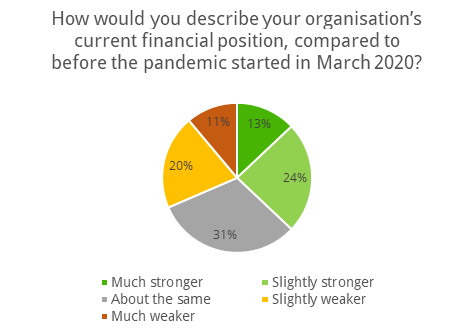


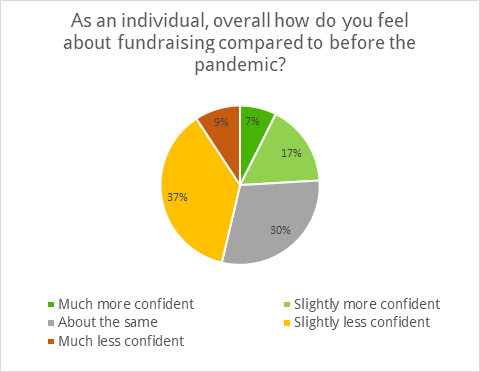
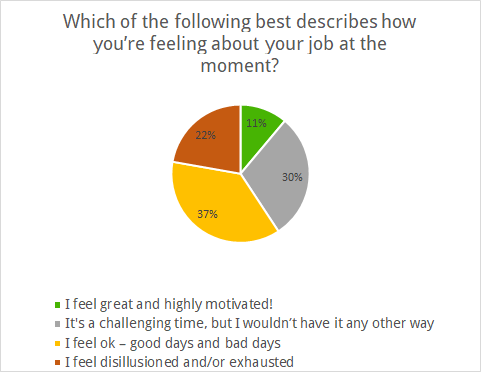


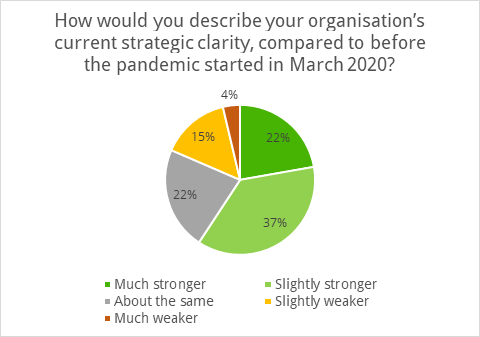
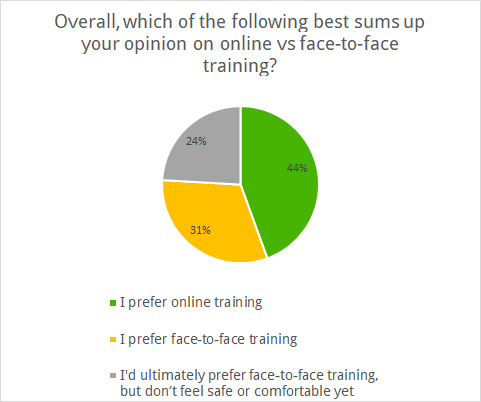



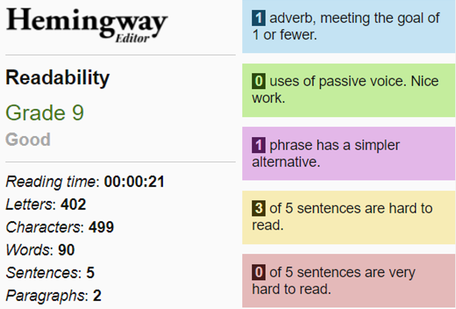
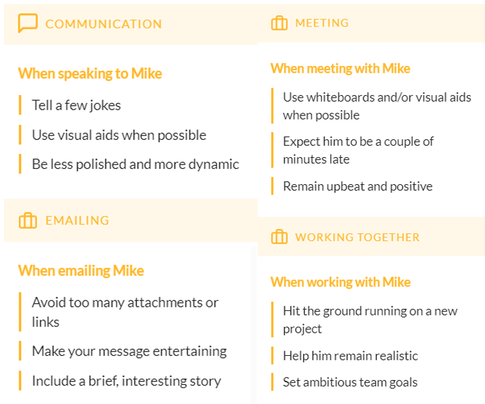
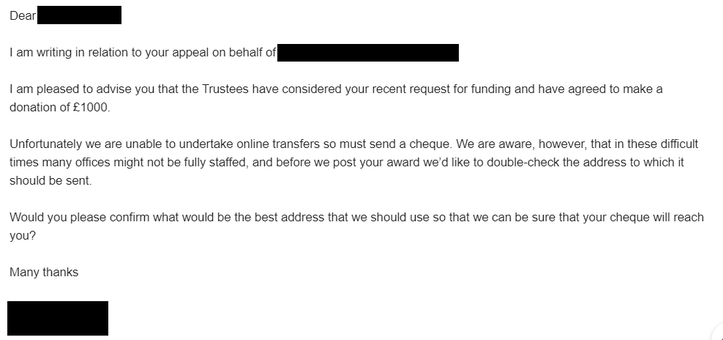


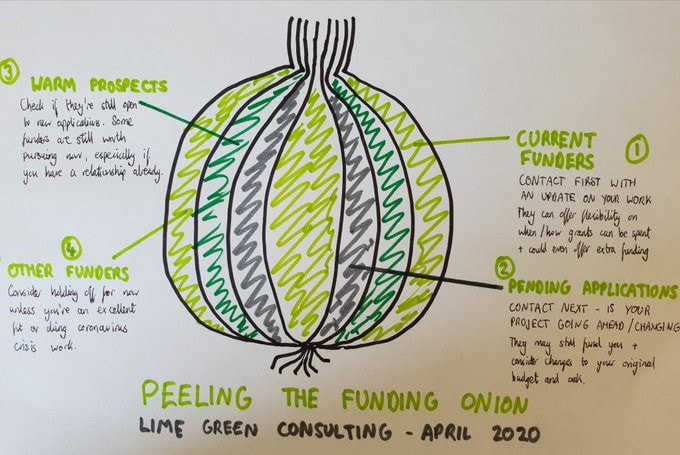









 RSS Feed
RSS Feed